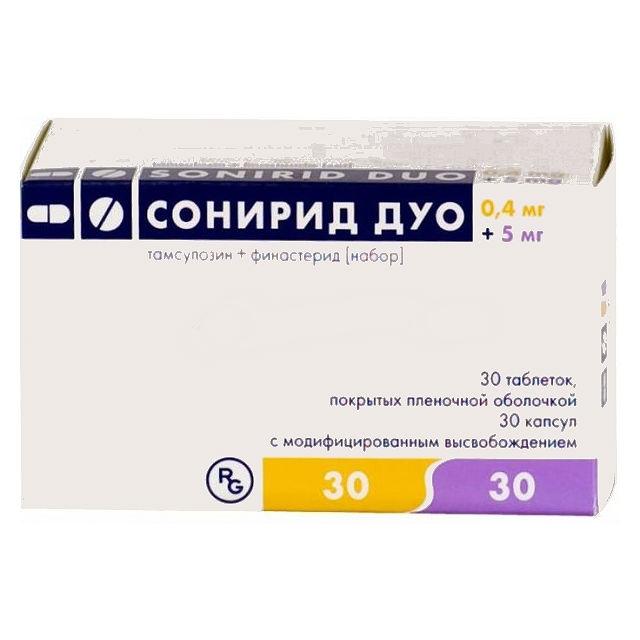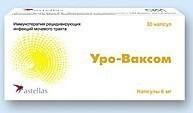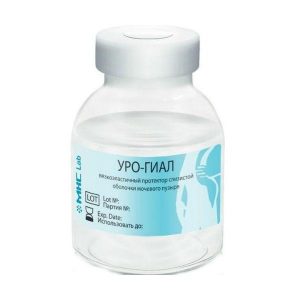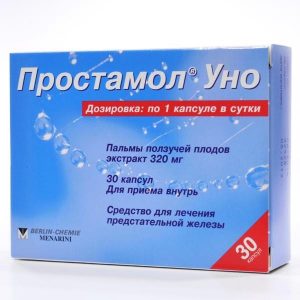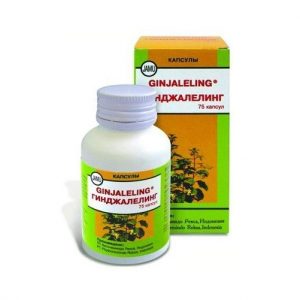Description
Release form
set of tablets and capsules
Packaging
30 tab. + 30 caps.
Pharmacological action of
The drug Sonirid Duo is intended for the treatment and control of symptoms of benign prostatic hyperplasia (BPH) when combined treatment with tamsulosin and finasteride is needed with the aim of:
achieving regression of the size of the prostate gland, improving urination and lower urinary tract symptoms, caused by BPH
slowing the clinical progression of the disease and reducing the incidence of acute urinary retention and the need for surgical treatment, including transurethral resection of the prostate (TURP) and prostatectomy
Sonirid Duo can be used only with enlarged prostate gland (prostate volume more than 40 cm3). With this enlargement of the prostate gland, combined treatment alleviates the symptoms of BPH and slows the clinical progression of the disease more effectively than with monotherapy with finasteride or an alpha-1-adrenergic blocker.
Indications
Treatment and control of symptoms of benign prostatic hyperplasia (BPH).
Contraindications
history of postural hypotension
severe liver failure
impaired renal function (plasma creatinine concentration> 2 mg / dl)
galactose intolerance, lactase deficiency, or glucose excipients.
Caution: if there is a risk of obstructive uropathy in liver diseases when planning surgical treatment of cataracts.
Composition of
Tablets and capsules set / set:
tamsulosin (modified-release capsules, 0.4 mg)
active substance:
tamsulosin hydrochloride, 0.4 mg
finasteride (5 mg film-coated tablets) active substance: finasteride, 5 mg.
Dosage and Administration
Sonirid Duo contains 400 mcg tamsulosin in modified release capsules and 5 mg finasteride in film-coated tablets.
Drugs are intended for daily use.
The daily dose of Sonirid Duo includes 1 capsule with a modified release of tamsulosin 400 mcg and 1 tablet, film-coated finasteride 5 mg.
Tamsulosin 400 mcg, modified-release capsules, must be taken at the same time of day after a meal. Capsules should be swallowed whole, do not break or chew, because this can disrupt the sustained release of the active substance.
For the full therapeutic effect, prolonged use of Sonirid Duo is necessary.
If adverse reactions occur, the patient can be transferred to finasteride monotherapy, however, it is recommended to return to the combined regimen while increasing the severity of symptoms of BPH.
Side effects of
Adverse reactions of tamsulosin monotherapy
From the nervous system: frequent – dizziness infrequent – headache rare – fainting.
From the cardiovascular system: infrequent – postural hypotension, tachycardia.
From the respiratory system: infrequent – rhinitis.
From the digestive system: infrequent – constipation, diarrhea, nausea, vomiting.
From the skin and subcutaneous fat: infrequent – rash, itching, urticaria rare – angioedema.
From the reproductive system: infrequent – retrograde ejaculation rare – priapism.
Adverse reactions of monotherapy with finasteride
From the immune system: infrequent – hypersensitivity.
From the side of the organ of vision: infrequent – clouding of the lens.
From the digestive system: frequent – abdominal pain.
From the skin and subcutaneous fat: infrequent – rash.
From the reproductive system and mammary glands: frequent – erectile dysfunction, impaired ejaculation, decreased ejaculate volume, decreased libido infrequent – breast tenderness, enlarged mammary glands, testicular pain.
During post-marketing observation, the following additional adverse reactions are described (there is no data on the frequency of adverse reactions): hypersensitivity reactions, including pruritus, urticaria, swelling of the lips and face.
Adverse reactions of combined treatment
Patients receiving combination treatment (finasteride and? 1-blocker) have the same adverse reactions that occur with the same frequency as with monotherapy with finasteride and? 1-blocker. However, the following exceptions were identified: erectile dysfunction and impaired ejaculation were detected more often with combined treatment, while disease progression (including increased symptoms of BPH or the need for surgical treatment) were noted more often with monotherapy.
Drug Interactions
In vitro studies of hepatic microsomal fractions (model of drug metabolism by the cytochrome P450 enzyme system), it was determined that tamsulosin does not enter into pharmacokinetic interaction with finasteride during liver metabolism.
Additional interaction of tamsulosin with other drugs and other types of interaction
No interaction was found with the simultaneous use of tamsulosin and atenolol, enalapril, nifedipine or theophylline.
Co-administration with cimetidine may cause an increase in plasma tamsulosin concentration, while furosemide causes its decrease. However, it is not necessary to change the dose of the drug, because tamsulosin concentration remains within normal limits.
In vitro diazepam, propranolol, trichloromethiazide, chlormadinone, amitriptyline, diclofenac, glibenclamide, simvastatin and warfarin do not alter the content of tamsulosin free fraction in human plasma.
Also, tamsulosin does not alter the free fraction of diazepam, propranolol, trichloromethiazide and chlormadinone.
In in vitro studies of hepatic microsomal fractions (model of drug metabolism by the cytochrome P450 enzyme system), no interaction with amitriptyline, salbutamol, glibenclamide and finasteride was observed at the level of hepatic metabolism.
However, diclofenac and warfarin may increase the rate of tamsulosin excretion.
Theoretically there is a possibility that co-administration with tamsulosin may enhance the hypotensive effect of other drugs, such as general anesthesia or other? 1-blockers.
Additional interaction of finasteride with other drugs and other types of interaction
No clinically significant interaction was found with the combined use of finasteride with the following drugs: warfarin, ACE inhibitors,? 1-blockers, theophylline, acetylsalicylic acid, paracetamol, beta-adrenergic blockers, di-adrenergic blockers , slow calcium channel blockers, anticonvulsants, NSAIDs, benzodiazepines, quinolones, histamine H2 receptor blockers, 3-hydroxy-3-methyl-hl inhibitors taril-coenzyme A reductase (HMG-CoA).
Storage conditions
The drug should be stored out of the reach of children at a temperature of 15 ° to 30 ° C.
lekarstvennaja form
capsule
Gedeon Richter Vengriya
